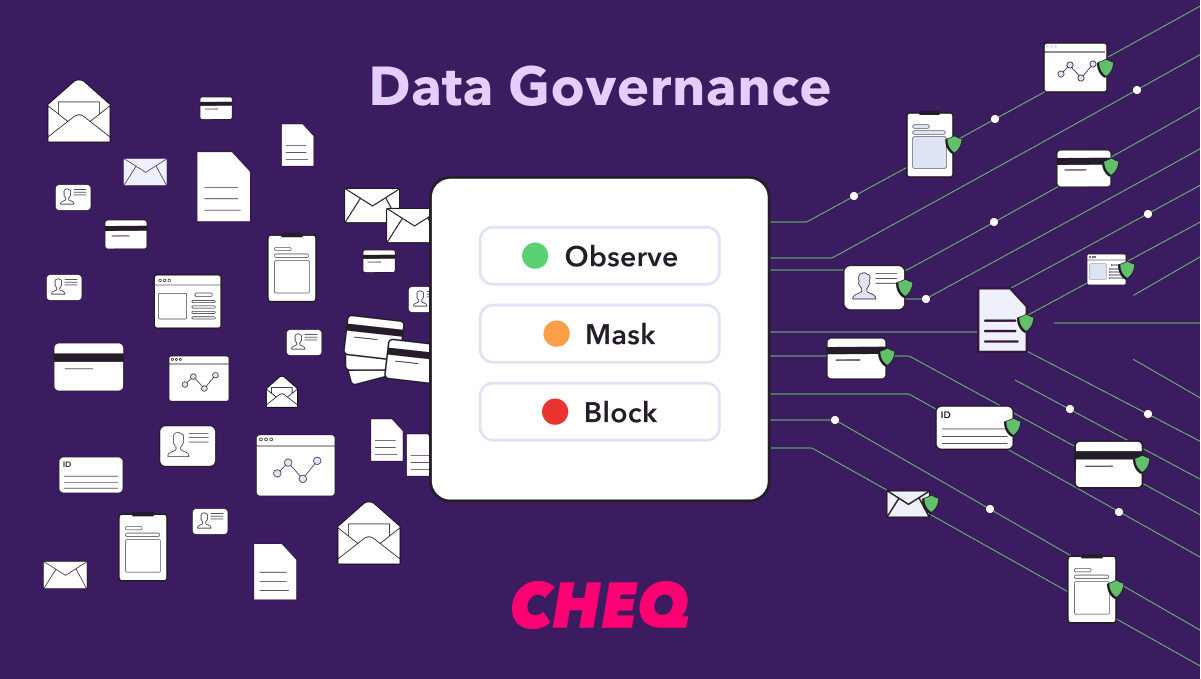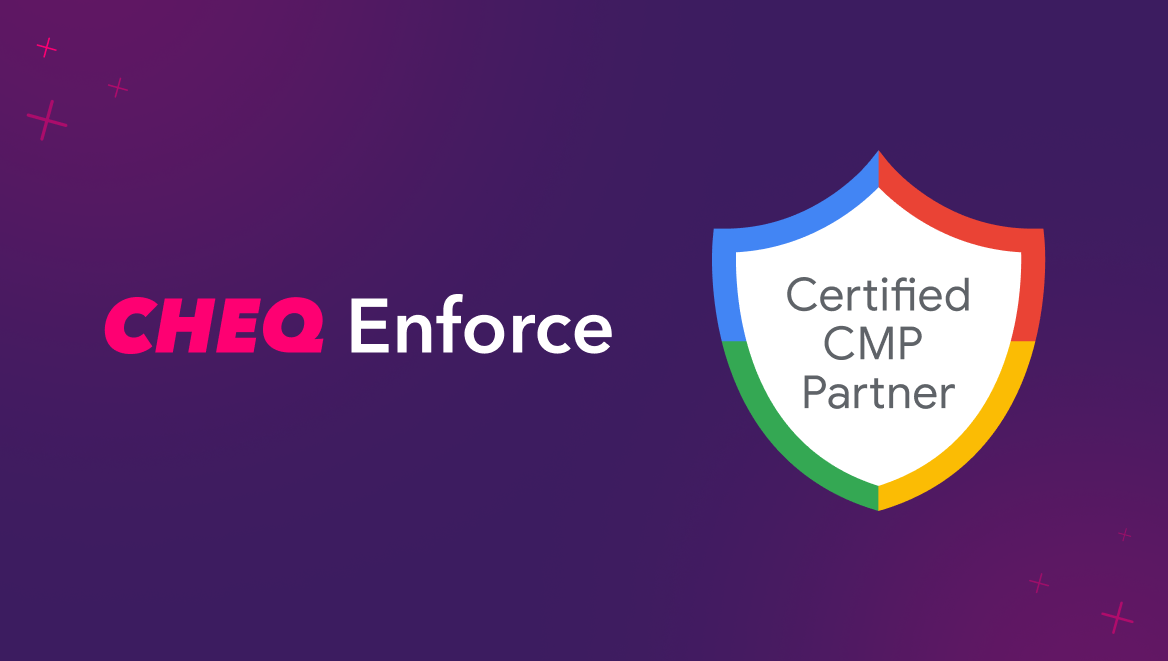Digital Tools that Promote Small Business Operational Efficiency
CHEQ
|Marketing | June 26, 2023

This is a guest blog from vcita.
Running a small business can be an incredibly rewarding endeavor, but it also comes with its fair share of challenges. Small business owners often find themselves wearing multiple hats, juggling various responsibilities, including operations and administration. In fact, small business owners spend around 16 weekly hours, or half of the average working week on these essential but time-consuming tasks.
Fortunately, there are powerful tools available that can help streamline operations and boost overall efficiency. By leveraging the right resources, small business owners can reclaim valuable hours and redirect their focus toward growth and strategic initiatives.
But why should small businesses prioritize improving operational efficiency?
The answer lies in the numerous benefits that come with it. Not only does it free up valuable time for business owners and employees, but it can also lead to significant cost savings.
Think about it: the hours saved on administrative tasks could be better utilized on revenue-generating activities or nurturing customer relationships.
To put it into perspective, a small business owner spends 10 hours per week on operational and administrative tasks. If those tasks were automated or streamlined, and the owner could allocate that time to activities directly related to business growth, it could result in increased revenue or reduced costs of between 40% and 75%!
In this blog, we will explore practical strategies and solutions that small business owners can implement to improve operational efficiency. From embracing technology to streamlining workflows, we will delve into the steps you can take to optimize your business operations, ultimately enabling you to allocate more time and resources toward growth-oriented initiatives.
Improving Operational Efficiency Using Technology
Project Management Tools
Project management tools are software solutions designed to help businesses plan, execute, and monitor projects efficiently. It helps with centralizing the planning and execution of projects and tasks. These tools offer a range of benefits, including:
- Enhanced collaboration: Project management tools facilitate effective communication and collaboration among team members, allowing for seamless coordination and information sharing.
- Streamlined workflows: These tools enable businesses to define project timelines, assign tasks, and track progress, ensuring that projects stay on schedule and tasks are completed promptly.
- Centralized documentation: Project management tools provide a centralized repository for project-related documents, ensuring easy access to files, reducing the risk of version control issues, and improving overall organization.
- Improved task visibility: With project management tools, businesses gain real-time visibility into the status of tasks and milestones, enabling better resource allocation and proactive problem-solving.
Online Scheduling Tools
Online scheduling tools are digital platforms that enable businesses to manage and automate their appointment and scheduling processes. With these tools you can empower your clients to book with you instead of spending the time calling and booking appointments with them.
Some benefits include:
- Streamlined appointment booking: Online scheduling tools provide customers with the ability to book appointments conveniently, reducing the need for manual scheduling and phone calls.
- Time savings: Businesses can save time by automating appointment reminders, confirmations, and rescheduling, eliminating the need for manual follow-ups.
- Enhanced customer experience: Online scheduling tools offer self-service options for customers, allowing them to book appointments at their convenience and reducing wait times.
- Efficient resource allocation: These tools enable businesses to optimize their resources by managing staff schedules, minimizing conflicts, and ensuring optimal appointment utilization.
Payment Collection Tools
Delays in client payments are a frequent cause of cash flow issues for small businesses. However, by simplifying the payment process and making it more convenient for clients, businesses can avoid these payment issues.
Payment collection tools are digital solutions that streamline the process of receiving payments from customers. These tools can allow you, as the business owner, to collect payments in various ways, and even securely store credit card information for swift payment collection in the future.
Benefits include:
- Faster payment processing: Payment collection tools offer various payment options and secure online payment gateways, enabling businesses to receive payments quickly and efficiently.
- Automated invoicing: These tools automate invoice generation, sending reminders, and tracking payment statuses, reducing manual administrative tasks.
- Improved cash flow: By offering convenient payment methods and automating payment reminders, businesses can accelerate the payment cycle and reduce cash flow issues.
- Increased payment accuracy: Payment collection tools help reduce human error in payment processing, ensuring accurate and timely payment recording.
Small Business CRM
Using a small business Client Management Software, also known as a CRM, allows businesses to manage customer interactions, streamline sales processes, and improve customer satisfaction.
Key benefits include:
- Centralized customer data: CRM systems provide a unified view of customer information, enabling businesses to better understand their customers’ needs and preferences.
- Enhanced sales efficiency: CRM tools automate lead management, sales tracking, and customer communication, optimizing sales processes and improving conversion rates.
- Improved customer service: By centralizing customer data and interaction history, CRM systems enable businesses to provide personalized and responsive customer service.
- Effective sales forecasting: CRM analytics and reporting capabilities help businesses forecast sales, identify trends, and make data-driven decisions for sales and marketing strategies.
Marketing Tools
Marketing tools encompass a wide range of digital solutions that assist businesses in planning, executing, and measuring their marketing efforts. If you want to get the word out about your products or services, you need to understand the basics of marketing, especially email marketing.
Some of the main pros of using marketing tools:
- Targeted campaigns: Marketing tools enable businesses to segment their audience, personalize messages, and target specific demographics, improving campaign effectiveness.
- Automation and efficiency: These tools automate repetitive marketing tasks, such as email marketing, social media scheduling, and ad management, saving time and improving productivity.
- Performance tracking: Marketing tools provide analytics and reporting features that help businesses measure the success of their marketing campaigns, identify areas for improvement, and optimize their strategies.
- Improved ROI: By analyzing campaign performance and customer data, businesses can make data-driven decisions, optimize marketing spend, and achieve a higher return on investment.
Digital Document Management
Digital document management tools enable businesses to store, organize, and manage their documents and files electronically. They reduce the need for searching for latest copies in your inbox, and centralize all the collaboration so it’s all in front of your eyes, and easy.
You can expect the following benefits:
- Enhanced document access and retrieval: Digital document management tools provide quick and easy access to files, eliminating the need for manual searching and improving overall efficiency.
- Version control and collaboration: These tools offer features for version control, document sharing, and collaboration, ensuring that teams can work together seamlessly on shared documents.
- Document security and compliance: Digital document management tools provide robust security measures and compliance features, protecting sensitive information and ensuring regulatory compliance.
- Reduced paper usage and storage costs: By digitizing documents, businesses can reduce their reliance on paper, minimize physical storage needs, and cut down on associated costs.
Data and Reports
Data and reporting tools enable businesses to collect, analyze, and visualize data to gain insights into their operations and make informed decisions. You can use data and reporting to make organizational and strategic adjustments to maximize your success.
Some highlights of using data and reports are:
- Data-driven decision making: Data and reporting tools provide businesses with the ability to analyze key metrics, track performance, and identify trends, enabling them to make data-driven decisions.
- Real-time monitoring: These tools offer real-time data updates and customizable dashboards, allowing businesses to monitor critical metrics and performance indicators as they occur.
- Performance evaluation: Data and reporting tools help businesses measure their performance against key performance indicators (KPIs) and track progress toward goals.
- Strategic planning: By analyzing data and generating reports, businesses can identify areas for improvement, optimize processes, and develop effective strategic plans.
Accounting Tools
Accounting tools are software solutions that assist businesses in managing their financial processes, including bookkeeping, invoicing, and budgeting.
Accounting tools are especially useful for the following:
- Efficient bookkeeping: Accounting tools automate financial transactions, including invoicing, expense tracking, and bank reconciliations, reducing manual data entry and potential errors.
- Simplified invoicing and billing: These tools streamline the invoicing process, generate professional invoices, and enable businesses to track payment statuses, improving cash flow management.
- Financial insights and reporting: Accounting tools provide businesses with real-time financial data, reports, and analytics, enabling them to gain insights into their financial health and make informed decisions.
- Streamlined tax compliance: By automating tax calculations and generating tax reports, accounting tools simplify the tax filing process and help ensure compliance with tax regulations.
Embracing Efficiency for Business Growth
Improving operational efficiency is a crucial undertaking for small businesses aiming to thrive in today’s competitive landscape. By harnessing the power of technology and implementing effective strategies, businesses can optimize their operations, streamline processes, and unlock valuable time and resources.
Efficiency is the key that unlocks the door to success. Embracing technology, optimizing processes, and continuously seeking ways to improve operational efficiency will position small businesses on a trajectory toward growth, profitability, and long-term sustainability.













